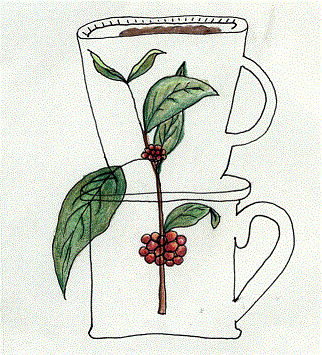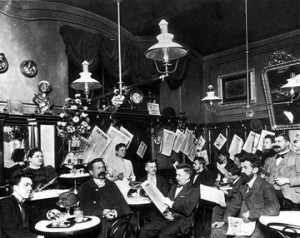19th century Coffee house in Vienna
It is well understood that coffee houses around the globe serve as a social hub through the consumption of wonderfully caffeinated beverages. In many ways coffee proves to have similarities to the social culture that revolves around alcohol consumption. It alters our state of mind and is very much a ticket to initiate conversation with others. During the seventeenth century, coffee was introduced to England and the Netherlands, then quickly gained popularity in Northern Europe and North America. Coffee shops were then a direct product of this movement and became important public institutions for the consumption of coffee and the gathering of people. It is largely argued that during prohibition times coffee consumption spiked. In a article titled, ” Coffee as a Social Drug”, Topik (the author) argues that, “coffee cultivation and trading have motivated empires, fueled armies, and provoked revolutions.” He claims that coffee was well suited as a commodity to inspire capitalism. Topik also addresses the dichotomy that exists between illiterate plantation slaves who provided the coffee and coffee drinking intellectuals. Francis Bacon believed that coffee was similar to the consumption of opiates, however rarely was it outlawed as an intoxicating substance. In some cases, coffee consumption was considered a subversive behavior by rulers for it potentially created passionate discussion that revolved around overthrowing hierarchies. Today we have many means through which we can consume stimulating products such as energy drinks, sugary delicacies, etc, but the alkaloid, caffeine which is naturally present in the coffee bean is so full of conversational power we may just underestimate it’s potential to spark a revolution the next time we meet up with a friend over a cup of joe.
Written by Valerie. Edited by Ashley.
“Studying cultural change” Jstor
“Coffee as a social drug”
image : history.org

